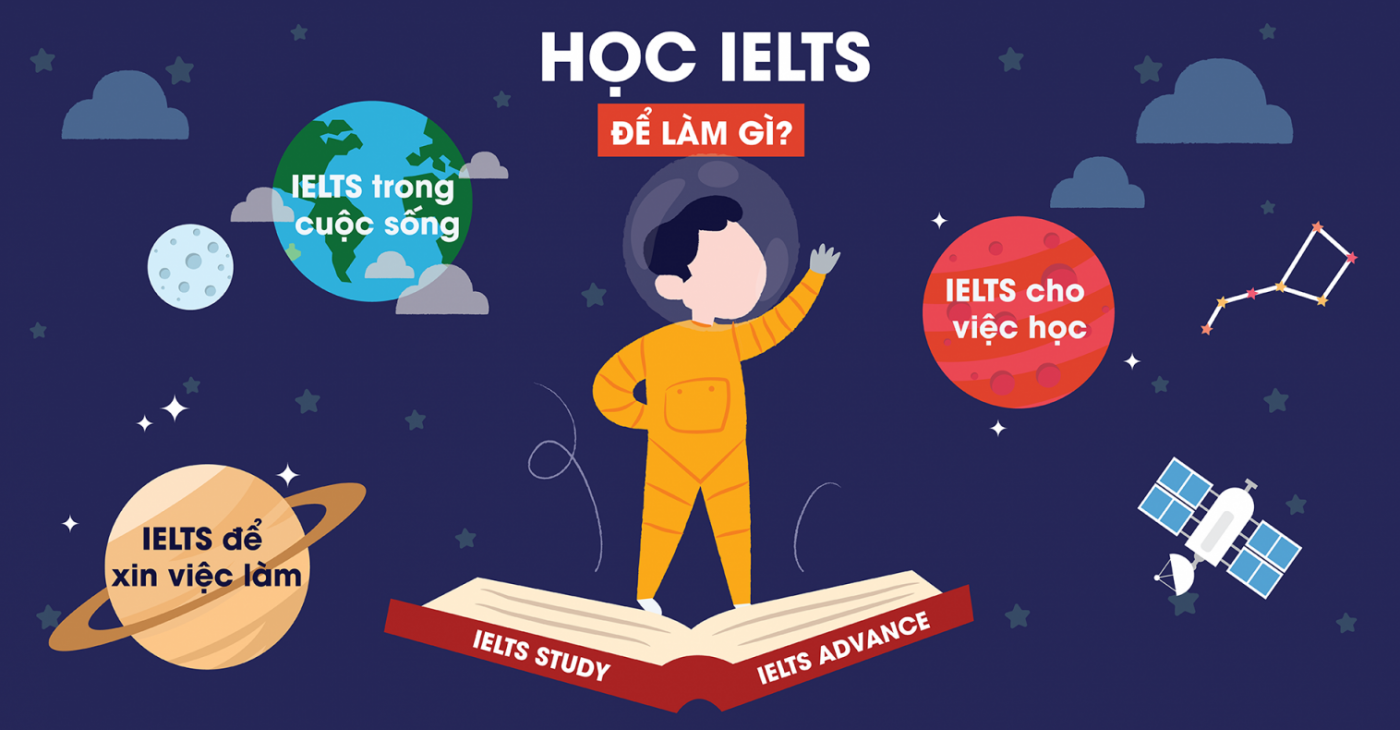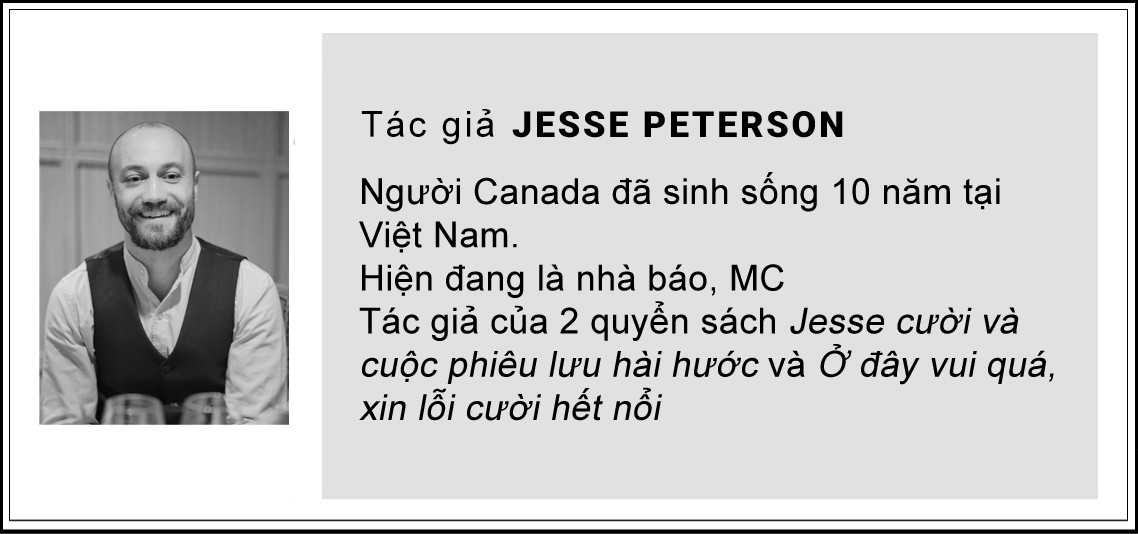Be Aware of the 'IELTS Industry'
(Baonghean.vn) - Do you want to communicate in English? Smile and help the person you are communicating with feel happy and comfortable, this is a great way to communicate, then find out how to learn by yourself.
A waiter at a familiar cafe asked me:
- "Brother, I want to learn IELTS, where should I start?"
- "I don't know any English, why did I choose to study IELTS?"
This question is quite normal, many people think they need to study IELTS when they have to study English, especially communication English. Actually, IELTS is just a way to test English ability but it is not the best or has anything to do with communicating in English.
I see the IELTS “brand” as an industry, as a way to “extort money” from people who don’t understand the concept of learning a second language. Look, the time it takes to really learn a language, for basic communication, is about 500 hours; yet many young people are studying 500 to 2,000 hours a year and can barely string together 4 sentences in a conversation! I tried to reason with them but the waitress at the cafe didn’t believe me.
- "Hey, why do we learn languages?"
- "Yes, to find a good job."
- I mean learning English to communicate! The problem with textbooks like IELTS is that they keep us from truly communicating with others, especially those who are not good at English but rush into IELTS preparation classes.
Usually, the basic knowledge is like a door that opens to help you go deeper - that is, you should understand more than 60% of English to be able to understand what is further developed. Just like when queuing, you need to go in order. Nowadays, many people like the cafe server are fooled by the "IELTS industry". IELTS creates a disconnect that takes you away from real communication. In the process of studying different sections, you may be able to write better, demonstrate superior knowledge of vocabulary and grammar, but that is counterproductive in communication. People who study IELTS well communicate like robots or AI, can speak but feel soulless. Before studying, everyone should know what "communication" is.
 |
In fact, we owe much of our learning to public speaking to Albert Mehrabian, a body language researcher who was the first to break down the components of a face-to-face conversation. He found that communication is 55% non-verbal, i.e., body language, facial expressions while speaking; 38% is about intonation, such as volume, tone, and expression; and only 7% is about words. So why do we spend so much time on grammar when it is unnecessary and actually an obstacle to speaking?
- “You like karaoke, right? Then music is a very standard form of communication, without the need for text, but through sound it can contain very deep meaning” - I advise the coffee server.
When I talk to someone who only learns English from books, it's like they're out of tune in a song, they don't tune in to connect when communicating with someone. Similarly, when I first learned Vietnamese, I also found it very difficult to learn from books. My Korean and Japanese friends were the same, every time I spoke, I had to think and then translate into Vietnamese, it was unnatural and very difficult to understand. This is the reason why I chose to live in Thai Binh when I had the opportunity to learn Vietnamese, I paid attention to how people communicate to learn through osmosis. So now I often joke with Vietnamese people when I first meet them: "Please understand that when I speak Vietnamese, I've only learned it for... 10 years". I communicate with Vietnamese people longer than I actually speak, because when I sit down to eat, I look at them talking and I can understand a lot from their emotions and body language. This way can be called organic learning, or natural learning.
 |
The key to communication is naturalness. Learning a foreign language through communication is not only through words but also through gestures and attitudes. Illustration: Internet |
There are also many special regions in Canada - the island of Newfoundland - the people on this island speak quite difficult to understand, the culture is also separate, influenced by the difficult weather and geographical location. They really remind me of the people of Central Vietnam. Although I know Vietnamese, it is still difficult to communicate with them because the pronunciation, topics... they speak are very different, only after a while of listening and communicating with them can I imitate.
A funny example is when I meet Westerners, part of their communication is shaking hands. They will shake hands about 3 times quite strongly. But I met some Vietnamese people who have learned English and greeted me in English, shook my hand lightly and then shook my hand continuously for a minute which I found strange.
This is the problem with language education in Vietnam and Canada (teaching and learning French), and probably in many places in the world: it is complicated, not fun, and does not teach you how to communicate with others first. In fact, the French curriculum in Canada is like the English curriculum in Vietnam, wasting a lot of time, students have difficulty concentrating, then they feel they are not smart and lose confidence, which is very harmful.
 |
In my opinion, there is no need to learn much grammar, except for those who want to be teachers. Look at children learning their mother tongue; look at me when I was backpacking in the Central region, listening to them say “Where are you going?” and imitating that sentence; look at how many years Vietnamese students sit in grammar class - enough time to learn more than 5 different languages, but still cannot communicate simply.
Stephen D. Krashen is an American linguist who suggests that students should learn to listen for a year or two before trying to speak, otherwise their pronunciation will be incorrect. You have to listen and then learn how to use words. Being good at English is simply being good at communicating in English. Schools should teach you how to communicate in English. Imagine having a superpower that could make everyone you meet smile. How much better would your life be if everyone was happy to be around you because you made them feel great? That is the skill that should replace grammar when learning a language.
The course should focus on skills like how to have a good conversation. For example, when you meet someone, what should you say when? Have you ever talked to someone about a strange topic, like football, and then felt bored because you couldn’t follow it? So when you talk, choose a topic that both of you find interesting.
In fact, the effective method of learning English must be “tuned to the right station” of the person you are communicating with, must be intuitive. Otherwise, later when the pharmaceutical industry continues to develop, parents will start giving their students “concentration pills” and that will affect the natural development of the students. Meanwhile, it is not the students’ fault, it is the boringness of the curriculum!
IELTS creates a disconnect, taking you away from real communication, engrossed in studying different grammar sections. You may write better, demonstrate your knowledge of vocabulary and grammar, but that is counterproductive in communication.
I write in Vietnamese as a job. My grammar is not perfect, but honestly, I try to think like Vietnamese people talk, hear their voice in my head and write like that. Because the key to good communication is not to sound complicated with complicated vocabulary; it is to be understandable, as understandable as possible to get your message across.
Do you want to communicate in English? Smile and make the other person feel happy and comfortable, this is a great way to communicate, then find out how to study by yourself. Otherwise, there are many centers with special IELTS methods that are always ready to waste your time and money.
 |
